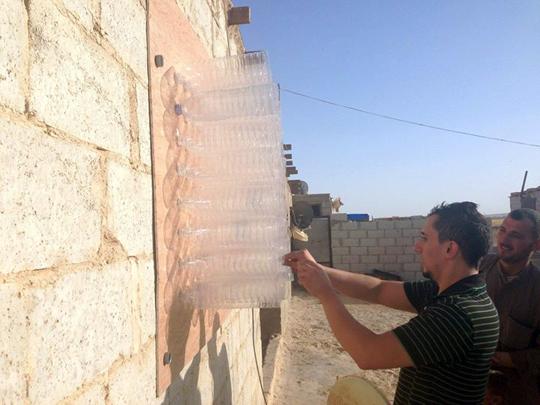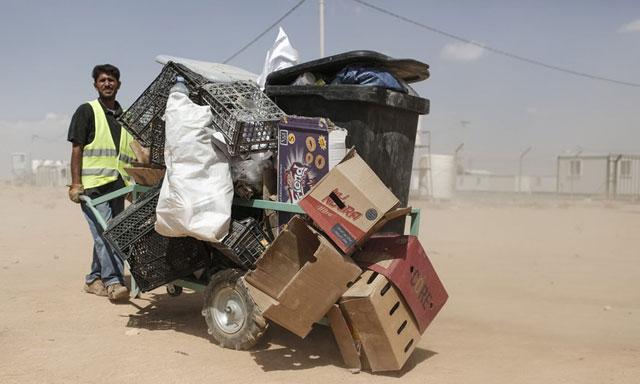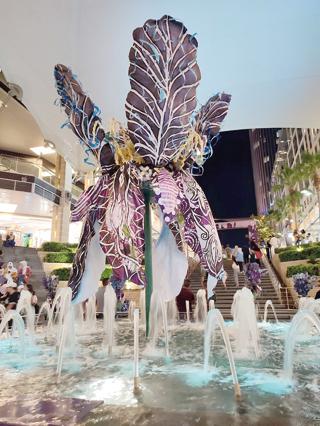You are here
NGO teaches refugees to make A/C units out of plastic bottles
By Camille Dupire - Sep 09,2017 - Last updated at Sep 09,2017

In cooperation with InnovationAid, Refugee Utility Project has recently concluded a pilot project in various refugee settlements in northern Jordan, which taught refugees how to make air conditioning units out of plastic bottles (Photo courtesy of RUP)
AMMAN — Despite governmental efforts to tackle the Municipal Solid Waste (MSW), most of Jordan’s 2.5 million tonnes of MSW end up at dumpsites and landfills each year, according to a Jordan Green Building Council report.
A little over half of the waste generated in Jordan is biowaste, with plastics coming in second place, amounting to 15 per cent of the total municipal waste.
Non-profit organisation Refugee Utility Project (RUP) decided to tackle this environmental challenge and turn it into an opportunity to support the refugee community by using recycled products to create air conditioners.
In cooperation with InnovationAid, the NGO has recently concluded a pilot project in various refugee settlements in northern Jordan, which taught refugees how to make air conditioning units out of plastic bottles, Emma Tweit, RUP head of communications told The Jordan Times in an e-mail.
The UNHCR estimates that around 80 per cent of Syrian refugees live outside established camps.
“These displaced persons face increasingly challenging circumstances, being forced to fend for themselves without support,” a RUP statement said.
“Our work is centred around creating sustainable solutions to daily issues faced by refugees, so they can access basic necessities,” the statement added, noting that creating air conditioning systems out of used plastic bottles and wooden boards also relieves refugees from the constant struggle to access electricity.
Calling on the public to give away their empty plastic bottles and plastic bags often overdistributed by supermarkets, RUP sought to achieve a two-folded purpose: help relieve the trash burden in the Kingdom while contributing to the aid sector.
“We wanted to show people that they can easily help just by donating what they consider as trash,” Bahaa, a volunteer with the project, told the Jordan Times, adding “those piles of plastic we see in the street should not have to go to waste”.
Witnessing the positive impact both on the refugee community and the environment, the NGO decided to continue its work in more communities, including Zaatari Syrian Refugee camp.
“We started assessing ways to improve the technical aspects of the project and see how we can expand it,” Tweit said.
RUP is currently working in partnership with Acting for Change Jordan to build the first permanent school in Rukban camp in Syria.
Related Articles
AMMAN — Despite the national strategy implemented to improve the management of Municipal Solid Waste (MSW), Jordan continues to suffer from
AMMAN — Environmental artist Maria Nissan is fighting against single-use plastics in Jordan by turning plastic waste into art. In colla
AMMAN — While collecting rubbish to make a living can seem unusual to some, it was the idea behind the successful “Waste to positive Energy”














